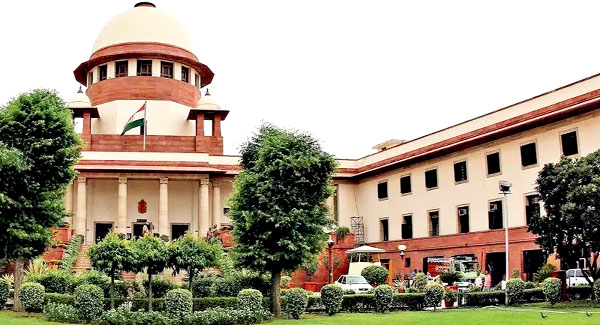NEW DELHI, Apr 29
Will an ex-Muslim continue to be governed by the Muslim personal law — the Shariat Act of 1937 — or by the secular laws of the country in matters of succession?
The Supreme Court on Monday agreed to consider the “important point” and issued notice on a writ petition filed by a woman from Kerala raising the question.
The notice from a three-judge bench presided by Chief Justice of India D Y Chandrachud came on a petition filed by Safiya PM. In her plea, Safiya, the general secretary of an organisation of ex-Muslims of Kerala, seeks a “declaration that persons who do not want to be governed by the Muslim Personal Law must be allowed to be governed by the secular law of the country, viz, the Indian Succession Act, 1925 both in the case of intestate and testamentary succession”.
The Supreme Court bench also asked the Attorney General for India “to nominate a law officer to assist the Court bearing in mind the importance of the issues which are raised”.
Initially, the bench was reluctant to entertain it and said as long as the person making the will does not make a declaration under Section 3 of The Muslim Personal Law (Shariat) Application Act, 1937, they will not be governed by the Act.
“You don’t have to seek that declaration. Because Section 3 of the Shariat Act says that unless you make a declaration, you will not be governed by the provisions of the personal law in the matter of wills, adoptions and legacies.
So if you don’t make a declaration, your father doesn’t make a declaration, they are not governed by the personal law,” said the CJI.
However, subsequently, the bench also comprising Justices J B Pardiwala and Manoj Misra agreed with Safiya’s counsel Advocate Prashant Padmanabhan. “There is a problem. Because if you don’t have a declaration, there is still a void because the secular law doesn’t apply.
When we started reading it, we said what kind of a petition is this. Now that you have got into it…it’s an important point. We will issue a notice,” said CJI D Y Chandrachud. The plea said as per the SC’s Sabarimala judgement, the fundamental Right to Religion under Article 25 of the Constitution of India, must include the right to believe or not to believe.
“To have meaning for that Right, the person who leaves her faith should not incur any disability or a disqualification in matters of inheritance or other important civil Rights,” it said.
The plea said the petitioner, “a born Muslim woman to a non-practising Muslim father, who has not officially left the religion, is facing the peculiar problem in protecting her precious civil rights”. It also said Safiya “wishes to get a declaration that she shall not be governed by Muslim Personal Law for any of the matters listed in section 2 or 3 of the Muslim Personal Law (Shariat) Application Act, 1937, but there is no provision either in the Act or in the Rules wherein she can obtain such a certificate. It is submitted that this is a clear vacuum in the statute which can be plugged by judicial interpretation”.
“As of now, the petitioner will not be governed by the secular laws of the country, viz, the Indian Succession Act, 1925 even if she officially gets a no-religion, no-caste certificate from any authority. Thus the Petitioner’s precious fundamental Rights under Article 25 are made meaningless by the absence of such a protection from the State,” it added.



























